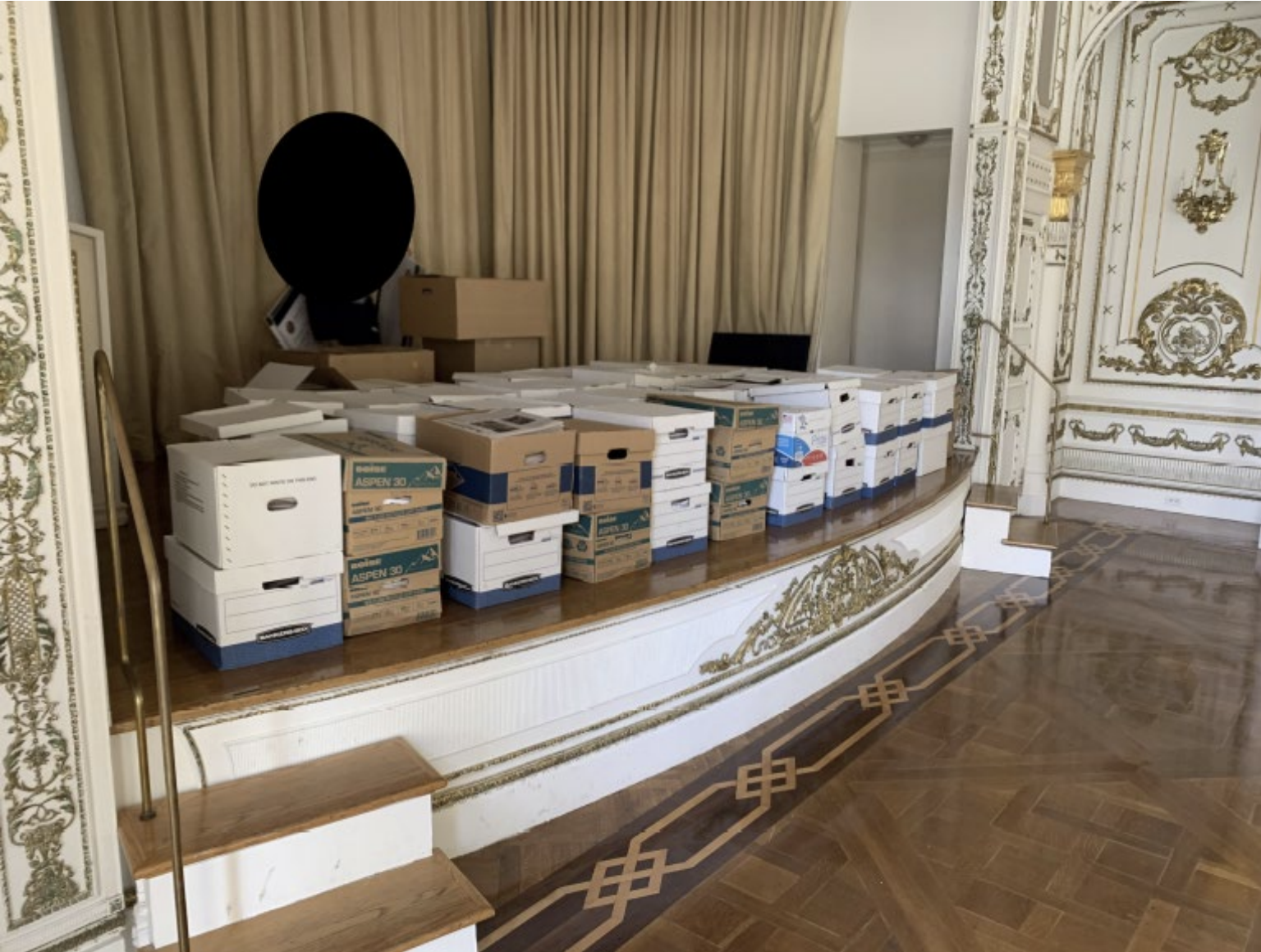The Department of Justice on Friday unsealed the federal indictment against former President Trump on charges related to the investigation into his handling of classified documents after he left the White House.
Why it matters: The more than half-dozen federal charges present the biggest legal threat to the former president, who is the frontrunner in the 2024 Republican presidential primary, and come just two months after he was charged in a Manhattan criminal court for allegedly falsifying business records.
Driving the news: The 49-page indictment includes 37 felony counts against Trump related to retaining classified information and obstruction of justice.
What was in the classified documents
The indictment says that during his presidency, Trump collected items such as notes, photos and letters — as well as "hundreds of classified documents" — and stored them in boxes.
- The classified documents "included information regarding defense and weapons capabilities of both the United States and foreign countries; United States nuclear programs; potential vulnerabilities of the United States and its allies to military attack; and plans for possible retaliation in response to a foreign attack.”
- The indictment says that unauthorized disclosure of the documents could jeopardize U.S. national security, "foreign relations, the safety of the United States military, and human sources and the continued viability of sensitive intelligence collection methods."
How the documents got to Mar-a-Lago

When Trump left the White House, "scores of boxes, many of which contained classified documents," were transported to his home at Mar-a-Lago in Florida, the indictment says.
- Trump was “personally involved” in the process of packing and moving boxes in January 2021, per the indictment.
- The boxes with classified documents were then stored “in various locations” at Mar-a-Lago, including “in a ballroom, a bathroom and shower, an office space, his bedroom, and a storage room.”
The Espionage Act allegations
The indictment includes 31 counts of willful retention of national defense information under the Espionage Act.
- After his presidency, Trump kept classified documents either created by or implicating the CIA, Department of Defense and National Security Agency, among others, the indictment says.
- The indictment says Trump also showed classified documents to others two different times in 2021, including at Trump National Golf Club in Bedminster, N.J., when he shared the documents with “a writer, a publisher, and two members of his staff, none of whom possessed a security clearance.”
- “Trump showed and described a ‘plan of attack’ that Trump said was prepared for him by the Department of Defense and a senior military official,” the indictment reads.
Trump's co-conspirator
Walt Nauta, an aide to Trump, is named as a co-conspirator in the indictment.
- Both Nauta and Trump face one count of conspiracy to obstruct justice.
- “The purpose of the conspiracy was for [Trump] to keep classified documents he has taken with him from the White House and to hide and conceal them from a federal grand jury,” according to the indictment.
What Trump is saying
After the indictment was unsealed, Trump took to his Truth Social account to criticize special counsel Jack Smith, who has been leading the Department of Justice’s investigation.
- Trump said the documents were “personal records,” and that he had "nothing to hide."
- "Nobody said I wasn’t allowed to look at the personal records that I brought with me from the White House," he wrote. "There’s nothing wrong with that…"
- Smith, for his part, said Friday the indictment "was voted by a grand jury of citizens in the Southern District of Florida," and invited "everyone to read it in full to understand the scope and the gravity of the crimes charged."
What Biden is saying
The White House said President Biden learned about the indictment through news reports.
- "The president, senior staff found out just like everybody else last night. No advance knowledge that this was coming. Found out from news reports just like everybody else across America,” principal deputy press secretary Olivia Dalton told reporters.
- When asked Friday whether he'd spoken to Attorney General Merrick Garland, Biden replied: “I have not spoken to him at all and I’m not going to speak with him. And I have no comment on that.”
Read the indictment:
Editor's note: This story has been updated with new details throughout.







